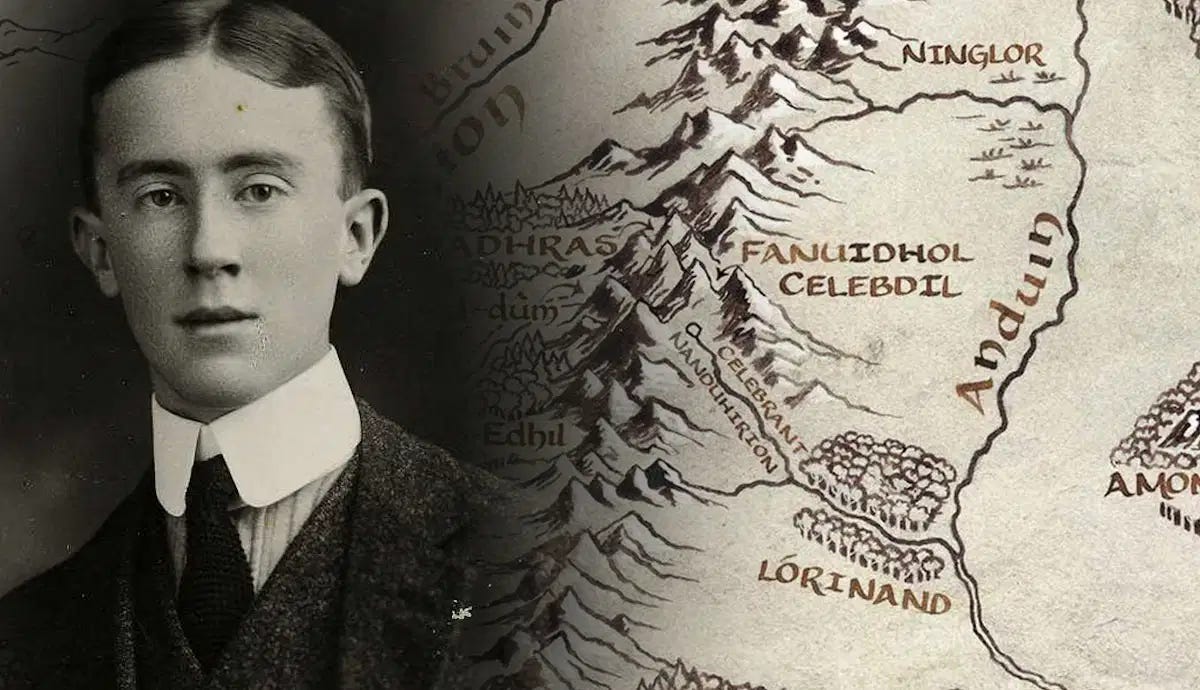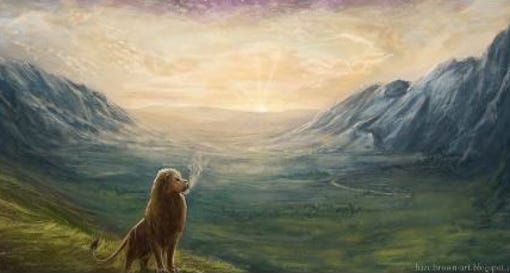Gerwig’s Narnia or Lewis’s Narnia?
Book-to-film adaptations & singing in harmony with Creation
People who view the world differently from the authors they are adapting are rewriting these stories in their own image. Whether the audience realizes it or not, the audience is witnessing a conquest happen right in front of them.
We’re alive during the peak of film studios launching remakes of beloved classics, spin-off series involving side characters, and sometimes even remakes of the aforementioned remakes. It is, to say the least, an unwieldy and dizzying time in Hollywood. Personally, I have started (quite literally) to turn the TV off and spend more time with the written word in an attempt to escape all the noise. But every once in a while, there are new projects that are too hard to ignore.
As a lover of the Narnia Chronicles, the new and upcoming adaptation from Greta Gerwig (for Netflix) is one such project catching my attention. That is in part because of the headlines Gerwig’s Narnia has drawn. I mean, if you replace the voice of the Christ figure in the series with a woman, you’re bound to get a raised eyebrow or two from the audience. Of course, we don’t know a ton about this new project yet besides that it’s likely The Magician’s Nephew, but what we do know has drawn me back to a question that resurfaces from time to time:
What should be the nature & scope of book-to-screen adaptations such as this?
This question first started to take shape was when I was watching the first season of Amazon’s Rings of Power. For those unfamiliar with the show, it focuses on the formation of the rings of power (given to elves, dwarves, and men), which is then followed and usurped by Sauron’s One Ring. It takes place in the Second Age of Middle-earth, thousands of years before Frodo’s providential quest, and compared to the beloved trilogy, there isn’t nearly as much source material to work from. And from that emerges another question to ponder:
How much liberty is the adaptation allowed to have with the source material?
The answer, as I see it, is that the story must maintain a comprehensive faithfulness to what the author intended. And that doesn’t just extend to lore and plot points, but it must also touch on how the author sees the world itself, and by extension, the sub-world he created. To put it in philosophical terms, the metaphysics must match.
And this is where Rings of Power really fell into trouble. Sure, there was the occasional scene or two (or twenty) that felt out of touch with Tolkien’s world, but the more egregious sin was when the showrunners changed the very fabric of Middle-earth itself.
This happened when they took the liberty of creating a backstory of how the super-ore, mithril, was created. This is something Tolkien never really developed. In their version, evil forces (a fiery demon known as a Balrog) had an equal hand in creating this precious metal that later played such a significant role in Frodo’s journey. This idea is contrary to the Christian belief that Satan can only pervert the good that has been created.
Evil has no creative power…..
….according to the worldview of Tolkien that made all of Middle-earth possible. Tweaking one little bit of a world, real or fictional, can spin the whole ecosystem out of order.
While the backstory may have had all the appearances of being subtle and harmless, it was actually woven together by something more nefarious. Not only were the show writers giving us a backstory outside of Tolkien’s legendarium, but they were also rewriting how Tolkien viewed reality itself and attempting to pass it off as canon.
Who knows what ripple effects that could have for the rest of the show and its audience.
And this seems to be my main issue with most of these adaptations. People who view the world differently from the authors they are adapting are rewriting these stories in their own image. Whether the audience realizes it or not, the audience is witnessing a conquest happen right in front of them.
Turning to Narnia, the real issue isn’t Meryl Streep being the voice of Aslan, or the bizarre “rock and roll” comment from one of the show’s producers; it is what the decision ultimately represents. "Creative liberty” means the rewriting of how Lewis viewed the world, and, by extension, a rewriting of his sub-created world. Maybe I’ll be proven wrong, but I can’t help but be skeptical that someone like Gerwig, an avowed progressive feminist, will handle a beloved series that explicitly touts traditional, biblical sexual ethics. Why would she remain faithful to the source material if it undermines her view of how the world should be?
Since the book they are most likely adapting is The Magician’s Nephew, I think it best to close with arguably the best passage in the whole narrative. As Aslan is creating the world of Narnia in song, there is a glorious moment of creation singing back to him.
Then two wonders happened at the same moment. One was that the voice was suddenly joined by other voices; more voices than you could possibly count. They were in harmony with it, but far higher up the scale: cold, tingling, silvery voices. The second wonder was that the blackness overhead, all at once, was blazing with stars. They didn’t come out gently one by one, as they do on a summer evening. One moment there had been nothing but darkness; next moment a thousand, thousand points of light leaped out—single stars, constellations, and planets, brighter and bigger than any in our world. There were no clouds. The new stars and the new voices began at exactly the same time. If you had seen and heard it , as Digory did, you would have felt quite certain that it was the stars themselves who were singing, and that it was the First Voice, the deep one, which had made them appear and made them sing.
Not only are the stars singing back to the Great Lion, but they are singing in harmony with him. The implication here is that how we live our lives really, truly matters. We can be in harmony with the good, true, and beautiful, or we can be a singularly discordant and cacophonous note that does more harm than good.
To put it another way, how do we handle what we’ve been gifted?
While my argument above may seem insignificant in the grand scheme of things, I’m one of those weirdos who thinks all these things intersect and connect in significant ways. I would say the faithless adaptations from Hollywood actually serve as a microcosm for our larger issues of sin, vice, and the need to deal with them. To what image are we conforming ourselves? Are we, like the Narnian stars, truly harmonizing with the very source of our being?
“Narnia, Narnia, Narnia, awake. Love. Think. Speak. Be walking trees. Be talking beasts. Be divine waters.”






Nailed this. No notes.
Honestly, once I heard Streep was cast as Aslan, I knew this movie wouldn't be for me. If Gerwig is willing to tinker with Jesus, nothing else she has to say is of interest to me.